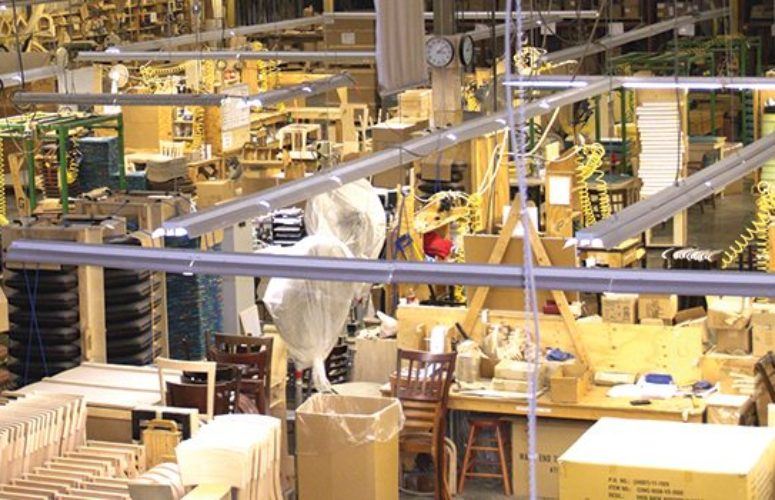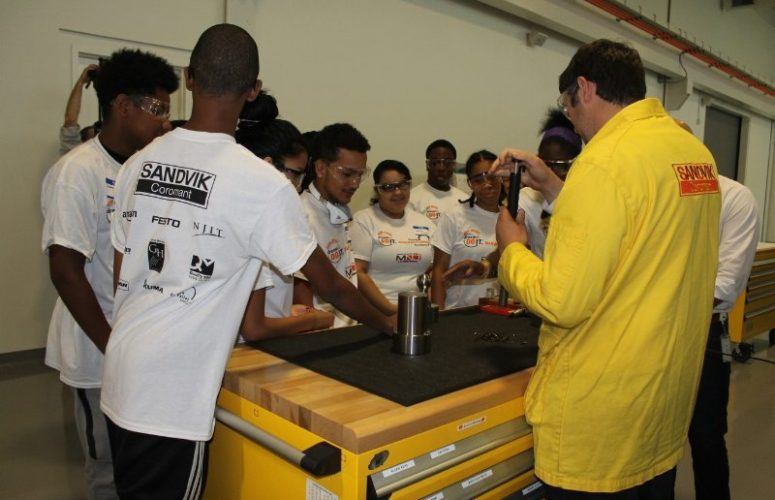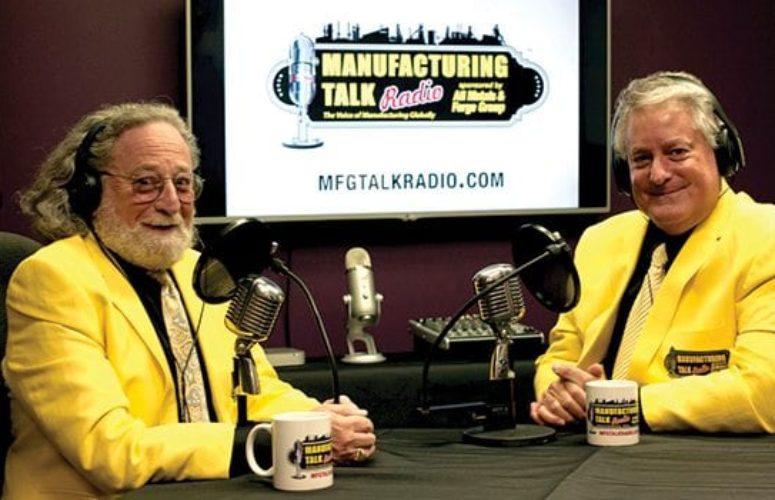
Manufacturing in New Jersey: Nothing Like Your Grandfathers’ Jobs
State organizations help generate the skilled workers manufacturers so desperately need.
By Lorna Pappas, Contributing Writer On Sep 29, 2015Despite the challenges New Jersey’s manufacturing segment faces, the climate is improving, opportunities are expanding and skilled workers are in high demand. But the challenges – among them, an unskilled workforce, government regulations and high costs – are preventing vigorous growth.
New Jersey Business interviewed leaders of several manufacturing companies and organizations in the state to pinpoint prospects for growth, as well as the roadblocks. We discovered interesting new scenarios in this age-old industry. Most notably, since every new manufacturing job now creates five additional new jobs, working together to conquer the industry’s challenges is vital to improving New Jersey’s economy.
“Manufacturing today doesn’t offer the same jobs your grandfathers had: Instead of unsafe, hot and grimy production lines, today high-end computer systems and complex robotics help produce goods in bright, clean surroundings,” asserts Raymond Vaccari, director of ManufactureNJ, the state-funded Advanced Manufacturing Talent Network hosted at New Jersey Institute of Technology (NJIT). ManufactureNJ links and leverages the assets of the many excellent manufacturing-related groups and resources in the state to bring profitable manufacturing back to New Jersey.
“Manufacturers desperately need workers with computer, mechanical, electrical, accounting and technical sales expertise, and other highly skilled workers and business professionals to seize the path to growth,” Vacari says. “That’s why the state started this organization four years ago: To identify manufacturers’ skill needs, train them to assist job seekers, and work with educators to develop curricula and certification programs that prepare the current and upcoming workforce for well-paid careers in manufacturing.”
Contrary to what many people think, the US is becoming a very competitive manufacturer. Vaccari adds: “Last year, the Boston Consulting Group predicted that by 2018, the US will be a lower-cost producer of manufactured goods than China. Only seven countries currently are less expensive than the US. In fact, today it is cheaper to build a BMW here and ship it to Europe than to build it in Europe. But, we’re challenged by an unskilled workforce. Yes, there are tax and regulation issues, but the biggest obstacle keeping manufacturers from coming to and staying in New Jersey is the lack of skilled workers.”
Competition From Other States
Some of New Jersey’s strongest competition now comes from other states, Vaccari says, including Florida, New York, North Carolina, Ohio and Pennsylvania. “These states have geared up by developing educational programs and training workers in the skill sets required in this new era of manufacturing.”
Meanwhile, many of New Jersey’s manufacturers have either downsized or left the state. Just a few major pharmaceutical plants remain, there is little paper product manufacturing, and no automobile, steel, glass and major wiring production.
“Manufacturing in New Jersey is a challenging proposition, wrought with high costs, expanding regulations and a depleted workforce base,” claims Bob Staudinger, president of Chatham’s National Manufacturing Co., Inc., and co-chair of the New Jersey Business & Industry Association’s Manufacturing Network. “These factors have driven our continual ranking among the least favorable states in which to operate a business. Combined with New Jersey’s inability to develop enough world-class talent, our manufacturers see missed opportunities, slowed growth and competitive disadvantages. There are few options but to look elsewhere to expand.”
Key Stakeholders Work Together
However, through the efforts of key stakeholders, tangible improvements have been taking place in rebuilding the foundation for manufacturing here in New Jersey, Staudinger reports. One such improvement is a new Basic Skills in Metalworking course that was developed, piloted and rolled-out in several community colleges. It now provides the education, skills and – ultimately – new manufacturing jobs to hundreds of previously unemployed citizens in New Jersey.
“In addition, administrators, educators and local manufacturers are partnering to target the education and skills needed for future careers in manufacturing,” remarks Staudinger. “The state now has two mobile high-tech training laboratories that move to areas that do not have adequate facilities for training. These trailers are equipped with Computer Numerical Control (CNC) machinery and automation systems, providing training to people in the newest technologies in manufacturing and mechatronics that our New Jersey manufacturers so desperately need.”
Furthermore, many of New Jersey’s vocational schools, “the jewels of our state,” have created and invested in new career readiness programs via their Career and Technical Education (CTE) initiatives, Staudinger notes, “yet 17,000 interested students were turned away last year alone due to lack of space.” (See “Career-Tech Education Finally Graduates,” in the March 2015 issue of New Jersey Business.)
“We applaud the Christie Administration’s support of manufacturing,” Staudinger adds. “New Jersey Department of Labor and Workforce Development Commissioner Wirths, Deputy Commissioner Fichtner and others have provided strong support with new program development and funding. Lt. Governor Guadagno’s Red Tape reviews and the Business Action Center continue to provide valuable oversight, support and back-pressure to those interested in over-regulating, but more is needed.”
70 Good Years in New Jersey
Accurate Box of Paterson, which employs 250 people, is the most significant of the corrugated box manufacturers left in the state. President and CEO Lisa Hirsh, granddaughter of the founding father, reports that though heavy regulations and high costs have always been a challenge, “we started here and we’re staying here!”
There are many benefits of operating in New Jersey, Hirsh says. “First, we bring in paper from all over the world, so it’s important for us to be near the major ports. We also ship internationally, so we must be close to proficient transportation. The New Jersey school systems are good, and we’re located less than an hour from the mountains, shore, airports and New York City. In addition, the Paterson area is highly populated, with a healthy pool of young workers that we train internally.”
Accurate Box leverages several state training grants to instruct new employees on its sophisticated equipment and procedures. And because commercial printing has been “decimated” in this area, “we’re able to find people already trained on computer-driven printing systems,” Hirsh reports.
The state’s CTE programs have helped funnel young designers into the company’s graphics department, which today utilizes high-end computers and digital printing processes. “We’re always looking to develop young people out of the technical high schools and colleges,” Hirsh adds.
Laws, Grants and Public-Private Investment in Manufacturing
The State Assembly recently passed several bills focused on CTE, and a five-bill package addressing the dire skills gap was signed by Governor Christie in December 2014. Myriad state-based financial, technical and management solutions – including loans, bonds, incentive grants, tax credits and exemptions, and other resources – also are available to help manufacturers reduce costs and increase productivity and profits.
On the federal level, the US government announced $100 million to expand apprenticeships for American workers, according to a White House press release. NJIT has applied for a portion of that grant. As many as 87 percent of apprentices are employed after completing their programs, and on average, begin working at $50,000 a year.
The US also is unleashing hundreds of millions of dollars specifically to improve the competitiveness of American manufacturing businesses and workers. Public-private investment partnerships between US industry, universities and federal government agencies are building new Institutes for Manufacturing Innovation (IMI), each with a unique technological concentration required for the next generation of advanced manufacturing. Through Rutgers University, New Jersey is among the states competing for an IMI designation. To date, eight IMIs have been launched across the country, with eight more planned by the end of 2016.
New Jersey’s 11,000 manufacturing companies, the majority of which employ less than 50 people, depend heavily on these supportive federal and state laws, grants and partnerships. As smaller companies, most have few resources, both financial and physical, for the programs required to grow their companies.
Which Position Can’t You Fill?
The NJ Manufacturing Extension Program (NJMEP) is a not-for-profit company working with all of New Jersey’s manufacturers, but with a focus on helping small- to mid-sized companies become more efficient, profitable and globally competitive. NJMEP recently asked New Jersey manufacturers, “What is the one position that you just can’t fill?”
Machinists and welders were expected to top the list, “but the No. 1 answer was technical sales,” reports John W. Kennedy, CEO of NJMEP. “Interestingly, people forget that manufacturers are also businesses; they’ve evolved from workers constantly standing in front of hot machines to high-tech companies requiring every capability that firms in other industries need, including marketing, sales, purchasing, shipping and engineering.”
New Jersey’s manufacturers also struggle with government’s knowledge of their segment: “There’s a lack of understanding by government officials (and much of the general public) as to what today’s manufacturing industry is really like … what companies do … what they need … and their value to the economy,” Kennedy declares. “That’s changing a bit now, but it’s been a struggle.”
The other side of this problem is that many manufacturers are losing confidence in the government. He reveals: “Manufacturing companies call their local officials for help with a problem, and the next minute OSHA or the DEP has arrived to do an inspection. This happens too many times, not necessarily as a punitive measure, but because of deficient understanding. Many local governments don’t comprehend the positive impact of having and helping a good company in their midst, one that’s hiring locally, and growing. The overall view of what and how things happen in manufacturing today really needs a refresh.”
Kennedy adds that manufacturers should make the move to reach out to local and state officials to develop the relationships that can improve that view.
Meet, Discuss, Constructively Disagree, Compromise and Move Forward
Although many of the state’s manufacturing opportunities are tempered by various challenges, “there are still terrific opportunities all around us!” asserts Alan Haveson, president of the New Jersey Technology and Manufacturing Association. The NJTMA helps find programs and services that assist New Jersey manufacturers of any size to grow and prosper.
“Great opportunities require time, positive efforts and a willingness to compromise in order to move forward towards success,” Haveson says. “Until all the entities involved in the state’s manufacturing improvement efforts are willing to meet, discuss, constructively disagree, compromise and concur, we will be chasing our challenges to little avail. Everyone needs to work together to make things happen, rather than intellectualizing the issues, or complaining without suggesting. It’s time to do something, take a chance, be entrepreneurial, and quickly and properly address the things that do and do not work.
“When people join forces – and hold our elected representatives accountable – we’ll have stronger leadership, be able to better leverage available opportunities and start experiencing vigorous manufacturing growth in New Jersey once again.”
Related Articles:






